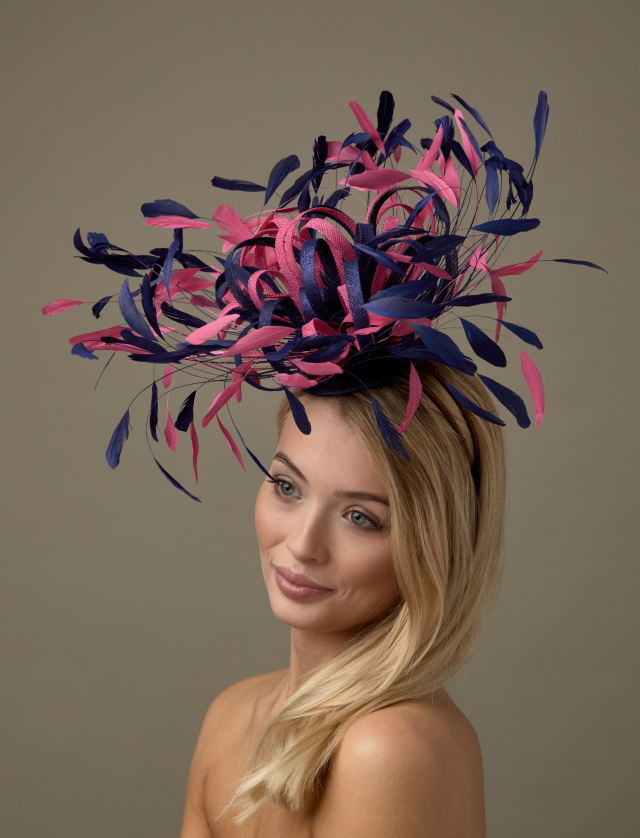Fascinators—tiny, elaborate hats that are clipped to the wearer's head—are a popular fashion choice among the women of the British royal family today. The name may seem like a perfect fit for the eye-catching accessory, but as Co.Design explains, the hat was called something entirely different until the 1960s.
The term fascinator first surfaced in the fashion world in 17th-century Europe. Back then, it referred to a lacy scarf women wrapped around their heads (or "fastened," hence the name). Rather than attracting stares from across the room, this version of the hat was meant to give women an alluring air of mystery. By the mid 20th-century, a slew of new hat styles hit the scene, leaving both the term fascinator and the garment it described to fall out of fashion.
In the 1960s, a New York milliner named John P. John decided it was time for the fascinator to make a comeback. Instead of thinking about the headpiece in its original sense, however, he used the name to rebrand the petite cocktail hats that were known at the time as clip-hats or half-hats. The sexy new name helped the already-popular design become even trendier.
Fascinators aren't that common in the U.S., but they're a staple of high-profile royal events in the UK. Princess Beatrice realized the accessory's full potential when she debuted her now-iconic fascinator at the wedding of Prince William and Kate Middleton in 2011. (She eventually auctioned it off on eBay for charity, where it sold for $130,000.)

